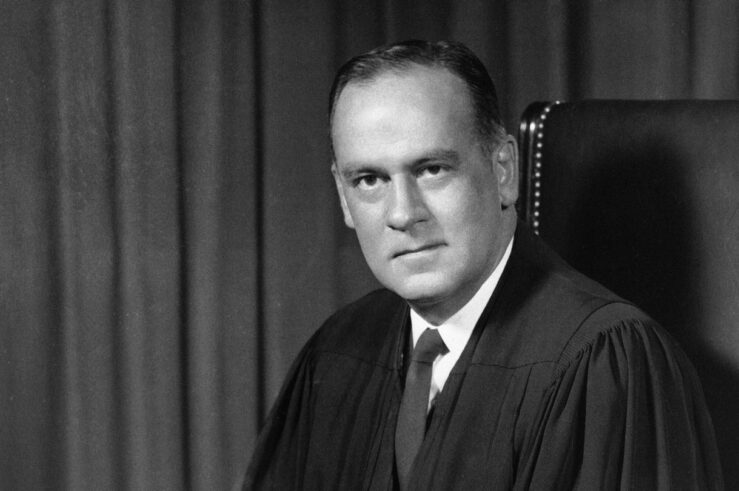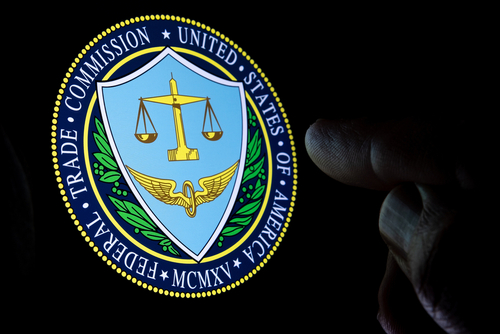The FTC’s UMC Statement Creates a Target for Federal Courts
The Federal Trade Commission’s (FTC) recently released Policy Statement on unfair methods of competition (UMC) has a number of profound problems, which I will detail below. But first, some praise: if the FTC does indeed plan to bring many lawsuits challenging conduct as a standalone UMC (I am dubious it will), then the public ought ... The FTC’s UMC Statement Creates a Target for Federal Courts
The New FTC Section 5 Policy Statement: Full of Sound and Fury, Signifying Nothing?
The Federal Trade Commission’s (FTC) Nov. 10 Policy Statement Regarding the Scope of Unfair Methods of Competition Under Section 5 of the Federal Trade Commission Act—adopted by a 3-1 vote, with Commissioner Christine Wilson issuing a dissenting statement—holds out the prospect of dramatic new enforcement initiatives going far beyond anything the FTC has done in ... The New FTC Section 5 Policy Statement: Full of Sound and Fury, Signifying Nothing?
The FTC Knows It When It Sees It
When Congress created the Federal Trade Commission (FTC) in 1914, it charged the agency with condemning “unfair methods of competition.” That’s not the language Congress used in writing America’s primary antitrust statute, the Sherman Act, which prohibits “monopoliz[ation]” and “restraint[s] of trade.” Ever since, the question has lingered whether the FTC has the authority to ... The FTC Knows It When It Sees It
FTC Section 5 Statement: Less Guidance Than Meets the Eye
On Nov. 10, the Federal Trade Commission (FTC) issued a new statement explaining how it will exercise its standalone FTC Act Section 5 authority. Despite the length of the statement and the accompanying commentaries from most of the commissioners, there is less guidance than one might expect from so many words. One thing is clear, ... FTC Section 5 Statement: Less Guidance Than Meets the Eye
Lina Khan’s Christmas Wish Is To Have Margrethe Vestager’s Powers
Federal Trade Commission (FTC) Chair Lina Khan has just sent her holiday wishlist to Santa Claus. It comes in the form of a policy statement on unfair methods of competition (UMC) that the FTC approved last week by a 3-1 vote. If there’s anything to be gleaned from the document, it’s that Khan and the ... Lina Khan’s Christmas Wish Is To Have Margrethe Vestager’s Powers
The End of Reason at the FTC
In a 3-2 July 2021 vote, the Federal Trade Commission (FTC) rescinded the nuanced statement it had issued in 2015 concerning the scope of unfair methods of competition under Section 5 of the FTC Act. At the same time, the FTC rejected the applicability of the balancing test set forth in the rule of reason ... The End of Reason at the FTC
A Policy Statement Is Still Only Worth the Electrons Upon Which It Is Written
Just over a decade ago, in a speech at the spring meeting of the American Bar Association’s Antitrust Law Section, then-recently appointed Commissioner Joshua Wright of the Federal Trade Commission (FTC) announced his hope that the FTC would adopt a policy statement on the use of its unfair methods of competition (UMC) authority: [The Commission] ... A Policy Statement Is Still Only Worth the Electrons Upon Which It Is Written
FTC Rejects Economics for ‘Fairness’
The current Federal Trade Commission (FTC) appears to have one overarching goal: find more ways to sue companies. The three Democratic commissioners (with the one Republican dissenting) issued a new policy statement earlier today that brings long-abandoned powers back into the FTC’s toolkit. Under Chair Lina Khan’s leadership, the FTC wants to bring challenges against ... FTC Rejects Economics for ‘Fairness’
Taking Cost-Benefit Analysis Seriously in Consumer-Data Regulation
In its Advance Notice for Proposed Rulemaking (ANPR) on Commercial Surveillance and Data Security, the Federal Trade Commission (FTC) has requested public comment on an unprecedented initiative to promulgate and implement wide-ranging rules concerning the gathering and use of consumer data in digital markets. In this contribution, I will assume, for the sake of argument, ... Taking Cost-Benefit Analysis Seriously in Consumer-Data Regulation
Potential Rulemaking on Commercial Surveillance and Data Security: The FTC Must Use Cost-Benefit Analysis
The Federal Trade Commission’s (FTC) Aug. 22 Advance Notice of Proposed Rulemaking on Commercial Surveillance and Data Security (ANPRM) is breathtaking in its scope. For an overview summary, see this Aug. 11 FTC press release. In their dissenting statements opposing ANPRM’s release, Commissioners Noah Phillips and Christine Wilson expertly lay bare the notice’s serious deficiencies. ... Potential Rulemaking on Commercial Surveillance and Data Security: The FTC Must Use Cost-Benefit Analysis
FTC Launches Commercial Surveillance Rulemaking
The Federal Trade Commission (FTC) launched one of the most ambitious rulemakings in agency history Aug. 11, with its 3-2 vote to initiate Advance Notice of Proposed Rulemaking (ANPRM) on commercial surveillance and data security. The divided vote, which broke down on partisan lines, stands in stark contrast to recent bipartisan efforts on Capitol Hill, ... FTC Launches Commercial Surveillance Rulemaking
Three Big Pitfalls in the Way of Lina Khan’s Agenda
In a recent op-ed for the Wall Street Journal, Svetlana Gans and Eugene Scalia look at three potential traps the Federal Trade Commission (FTC) could trigger if it pursues the aggressive rulemaking agenda many have long been expecting. From their opening: FTC Chairman Lina Khan has Rooseveltian ambitions for the agency. … Within weeks the FTC is ... Three Big Pitfalls in the Way of Lina Khan’s Agenda
















